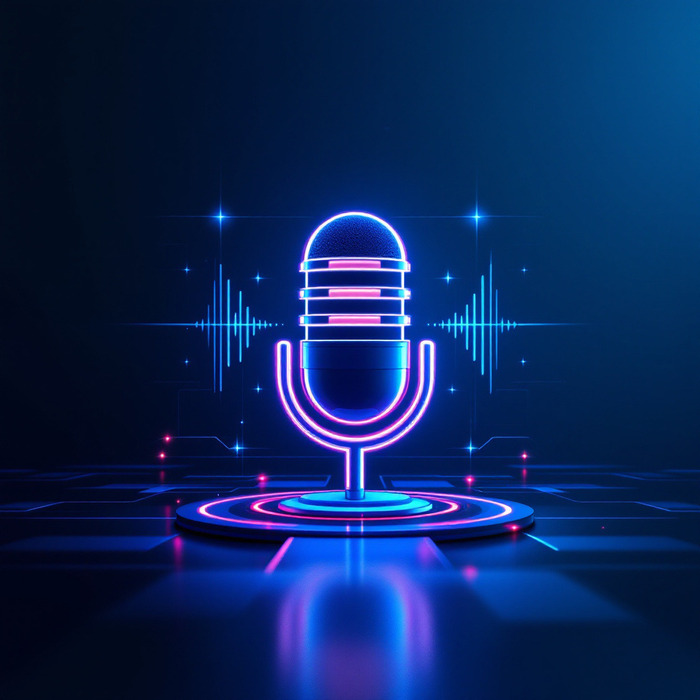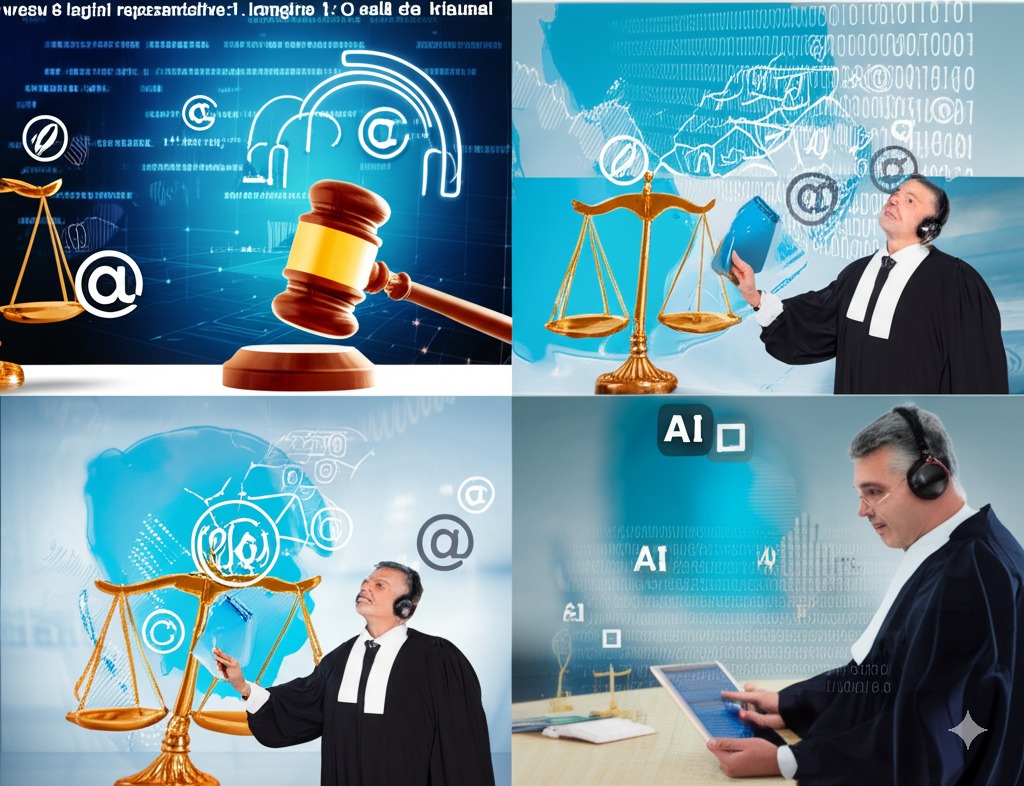
Discover what you need to know about copyright laws for AI-generated audiobooks in this practical guide. Learn about voice rights, legal risks, and how to stay compliant when using AI voices for your publishing projects.
Introduction: The Legal Challenges of AI in Audiobook Production
Have you noticed how many audiobooks are now made with AI voices? The technology is amazing, but it’s creating some tricky legal questions. Copyright laws for AI-generated audiobooks are still catching up, and if you’re using these tools, you need to know the basics to avoid costly mistakes.
Think about it – when no human narrator is involved, who actually owns the rights to that audio? Is it the author, the AI company, or someone else entirely? And what about voice actors whose speaking styles might be copied by these AI systems?
For publishers, this technology offers huge cost savings. A human narrator might charge $250+ per finished hour, while AI voices cost a fraction of that. But those savings come with legal risks if you don’t understand the rules.
In China, a voice actor recently won a lawsuit against companies using her voice without permission. In the US, copyright offices are updating their policies about AI-created content. And in Europe, new regulations are requiring special labels for synthetic voices.
Whether you’re an author looking to self-publish, a small publisher trying to compete, or a voice professional concerned about your rights, this guide will break down what you need to know in plain language. We’ll look at the difference between copyright and voice rights, how laws vary around the world, and practical steps to protect yourself legally when using this exciting technology.
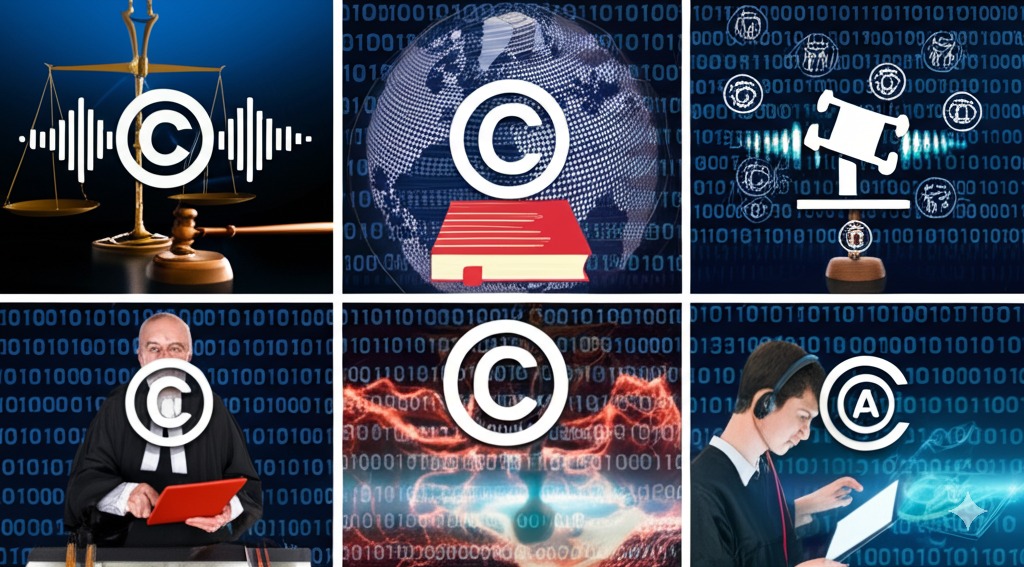
Understanding Copyright Laws for AI-Generated Audiobooks
Copyright Protection for AI-Generated Content
Let’s start with the basics. Copyright laws were created to protect human creativity – but what happens when a machine creates something? That’s the big question for AI audiobooks.
In most countries, copyright requires a human creator. When an AI system reads your book aloud, the legal protection gets complicated. Courts and copyright offices are still figuring this out, but here’s the current thinking: the more human input involved, the stronger your copyright claim.
What counts as human input? Selecting the voice, editing the audio, directing the emotional tone, and making creative choices about pronunciation. If you just press a button and the AI does everything, your copyright protection might be weak. But if you carefully craft how the AI performs the text, you have a better case.
The AI audiobook copyright laws are evolving quickly, so if you’re creating these products, stay updated on the latest legal developments. Publishers who understand these nuances can protect their work better than those who don’t.
Public Domain and AI Narration
One popular use of AI voices is narrating public domain books – classics like Pride and Prejudice or Sherlock Holmes stories that are no longer under copyright. This seems like a safe bet legally, but there are still some gotchas to watch out for.
First, make sure the text is truly in the public domain in all countries where you’ll sell the audiobook. Copyright terms vary – a book might be free to use in the US but still protected in Europe.
Second, be careful with newer translations or annotated editions. While the original Moby Dick is in the public domain, a translation from 2015 isn’t. If you use a modern edited version as your source text, you could face copyright infringement risks.
For creators wanting to explore this area, tools like Murf.ai and Play.HT offer voices suitable for audiobook narration, but you’ll still need to be careful about which texts you choose.
Voice Rights: A New Legal Frontier
The Yin Case: China’s Landmark Voice Rights Precedent
One of the biggest shake-ups in this field happened in China. A voice actor named Yin sued several companies because they used AI to copy her voice without permission. And she won.
The Chinese court ruled that a person’s voice is protected under personal rights laws and awarded her 250,000 yuan (about $35,000). This wasn’t just about copyright – it established that people have rights to their vocal identity.
This case set a major precedent for voice rights in publishing. As covered in multiple news sources, the court recognized that your voice is part of your personal identity and can’t just be copied without consent, even by AI.
For publishers and developers, navigating voice rights lawsuits in China is becoming an important consideration when using AI voice technology. The ruling signals that other countries might follow with similar protections.
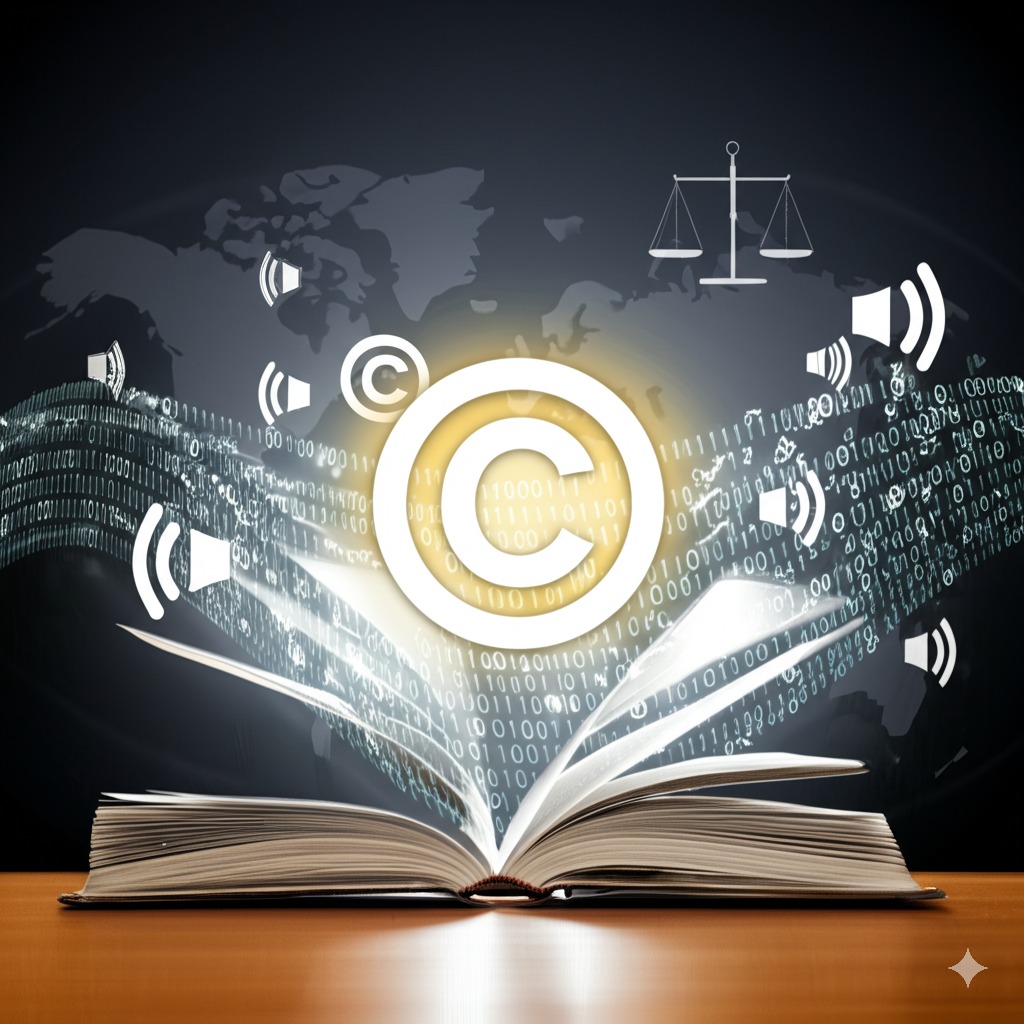
Distinction Between Copyright and Voice Rights
Here’s an important difference many people miss: copyright and voice rights are not the same thing. Copyright protects creative works, while voice rights protect a person’s vocal identity.
Think of it like this: an actor’s performance in a movie is protected by copyright, but using technology to make that actor appear to say things they never said might violate their personality rights.
With AI voices, this distinction matters a lot. Think about it – if you use an AI voice that sounds just like a famous actor or well-known narrator, you might be breaking vocal identity protection laws, even if you’ve got all the proper copyright permissions for the book itself.
Want to make audiobooks without these legal headaches? Check out text-to-speech for content creators to learn safer ways to use this technology. It’ll help you avoid the risky areas while still getting the benefits of AI voices.
Regional Approaches to AI Audiobook Copyright
North America: US Copyright Office Guidelines
The US Copyright Office has been updating its guidance on AI-created works, and their approach impacts audiobooks directly. Their current position is that works need human authorship to qualify for copyright.
For AI audiobooks, this means the human elements of production become crucial. The more human creativity involved in directing how the AI performs the narration, the stronger your copyright claim. Simply running text through an AI narrator with no human input or editing might not qualify for protection at all.
If you’re using platforms like Speechify or Fliki.AI, keep records of everything you do to the AI voice. Write down which voice you picked and why. Save notes about where you adjusted timing, added emotional cues, or edited the audio after it was generated.
Not ready to jump all the way in? Small publishers might want to check out AI text-to-speech for audiobook marketing first. It’s a lower-risk way to dip your toe in the water before making full audiobooks with AI.
European Union: AI Act Compliance in Audiobook Publishing
The EU is doing things differently with their AI Act. They care less about who owns the copyright and more about being honest with listeners. Their rules say you have to tell people clearly when they’re hearing an AI voice, not a human.
This means your AI audiobook needs to tell listeners that the voice they’re hearing is synthetic. No trying to pass it off as human! These EU compliance requirements for synthetic narration apply to any audiobook sold in EU countries, regardless of where it was produced.
Cross-border distribution gets complicated here. A book might meet legal requirements in the US but need different labeling and disclosures to be sold in Europe. Publishers should build these requirements into their production process from the start.
The EU is often a trendsetter for digital regulations, so even if you’re not selling there now, these rules might influence other markets in the future.
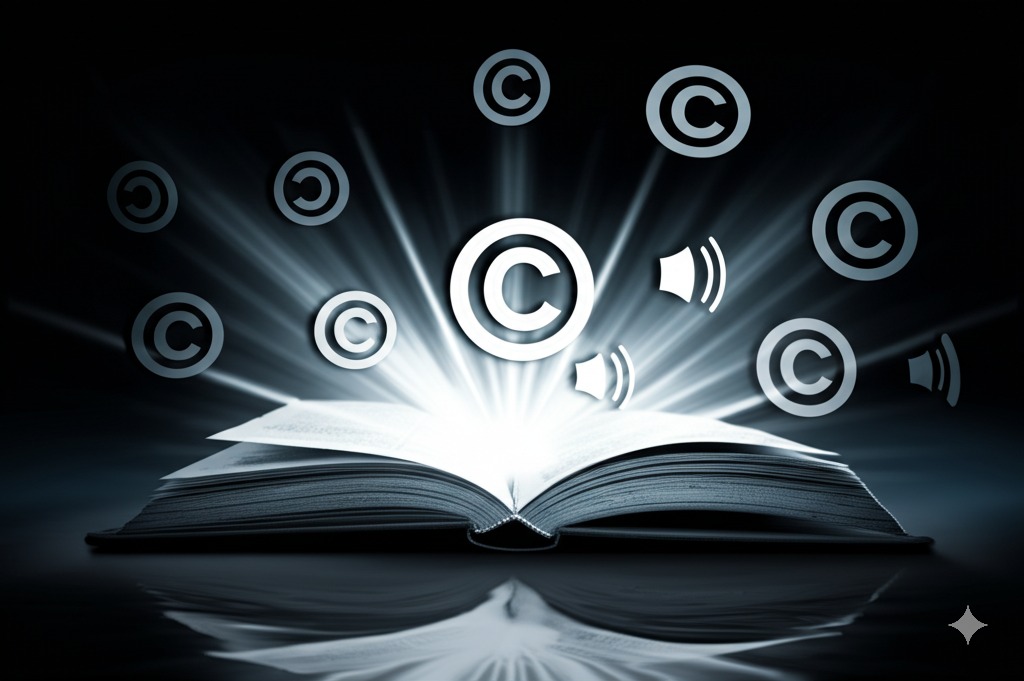
Asia-Pacific: Emerging Voice Rights Legislation
After the Yin case, China has emerged as a leader in voice rights protection. Their approach is based on personality rights rather than just copyright, treating a person’s voice as protected similarly to their image.
Look at what’s happening across Asia. According to ZDNet, other countries in the region are watching these developments closely. Japan and South Korea are paying attention. They’ve got lots of voice actors in their TV shows, movies, and games who could face the same issues.
The Asia-Pacific region is seeing rapid growth in AI-generated audiobook licensing, with new platforms emerging that focus specifically on local languages and compliance with regional laws. But here’s the tricky part – each country has its own rules about using AI voices.
These regional differences in copyright enforcement mean you can’t just use the same approach everywhere. The rules in China aren’t the same as in Japan. If you want to sell AI audiobooks across Asia, you need to learn what each country requires.
Companies like Lovo.ai that make these AI voices have to keep up with all these different rules when they sell their products in Asian markets.
For technology companies like Lovo.ai that offer voice synthesis, these evolving regulations will shape how they develop and license their technology in Asian markets.
Practical Compliance Guide for Publishers Using AI Voices
Essential Documentation for Legal Protection
If you’re creating AI audiobooks, good record-keeping is your friend. Here’s what you should document to protect yourself legally:
- Voice licenses: Keep records of the AI voice licenses you’ve purchased, including the specific terms for commercial use.
- Human input: Document all the ways humans contributed to the production – voice selection, editing, direction, etc.
- Rights clearances: Save proof that you have the rights to create an audio version of the text.
- Compliance checks: Note which regulations apply in each market and how you’ve met them.
When selecting an AI voice platform, look for those that provide clear licensing terms for commercial use. Not all platforms allow their voices to be used in products you sell, so read the fine print carefully.
For those just starting out, exploring free text-to-voice online options can be a good way to test the technology before investing in commercial licenses.
Platform-Specific Legal Features Comparison
Different AI voice platforms offer various features to help with legal compliance:
- Murf.ai: Includes built-in compliance templates for different regions and automated attribution tools to help you meet labeling requirements.
- Lovo.ai: Uses blockchain-based voice licensing systems to ensure voice artists are properly compensated, which helps reduce legal risks.
- Speechify: Offers regional law auto-detection features that adjust outputs based on where you’re publishing.
- Fliki.AI: Provides clear commercial usage rights and licensing documentation.
- VoiceOverMaker.io: Offers voices specifically licensed for commercial projects with clear terms.
These platforms are adapting to help creators navigate the complex world of audiobook publishing regulations. When choosing a platform, consider not just the voice quality but also the legal protections they offer.
For those creating educational content, text-to-speech for e-learning platforms often have more established licensing terms due to their institutional focus.
Real-World Use Cases: Navigating Legal Challenges in AI Audiobooks
Case Study: Yin vs AI Companies (China)
Let’s look closer at the Yin case, since it’s setting precedents globally. Yin, a professional voice actor, discovered her voice was being used by AI companies without her permission. These companies had trained their algorithms using her recorded performances.
When she took them to court, the key issue wasn’t copyright infringement, but rather unauthorized use of her personal voice characteristics. The Chinese court ruled in her favor, establishing that voice is protected as a personal right.
The lesson? Training AI on someone’s voice without permission is risky business. Companies in this space are now having to rethink how they develop voice models, with many moving toward either creating fully synthetic voices or properly licensing voice talent.
For small publishers looking to avoid similar legal issues, using free AI voice cloning services that have properly licensed their training data can be a safer approach.
Case Study: Penguin Random House’s Licensing Strategy (Global)
Major publisher Penguin Random House has taken a different approach. Rather than avoiding AI voices, they’ve developed a comprehensive licensing strategy that varies by region.
According to industry sources, they’ve created different license agreements for different territories to account for varying legal requirements. In the EU, their agreements include the required AI disclosures. In China, they’re careful about voice rights. In the US, they focus on documenting human creative input.
This approach allows them to legally publish AI audiobooks worldwide by adapting to local regulations. Their success shows that how to legally publish AI audiobooks worldwide requires a flexible, region-specific approach rather than a one-size-fits-all strategy.
Smaller publishers can learn from this by researching requirements in each market they plan to enter and adapting their processes accordingly.
Future Trends in Copyright Laws for AI Audiobooks
Anticipated Global Legislative Changes by 2030
What’s coming next in this rapidly evolving field? Legal experts predict several trends:
- More countries will likely follow China’s lead in recognizing specific rights to vocal identity.
- The US Copyright Office will continue refining its approach to AI-generated works, potentially creating clearer guidelines for mixed human/AI content.
- The EU’s transparency requirements will likely expand to include more details about how AI voices are created and used.
- We’ll probably see the emergence of collective licensing bodies for AI voices, similar to how music licensing works today.
- International standards for synthetic narration legal compliance may develop to help publishers navigate cross-border sales.
According to legal analysts at HFG Law & Intellectual Property, voice rights litigation will likely increase before stabilizing as standards become clearer.
For creators interested in staying ahead of these trends, understanding the evolution of text-to-speech technology and its legal implications will be valuable.
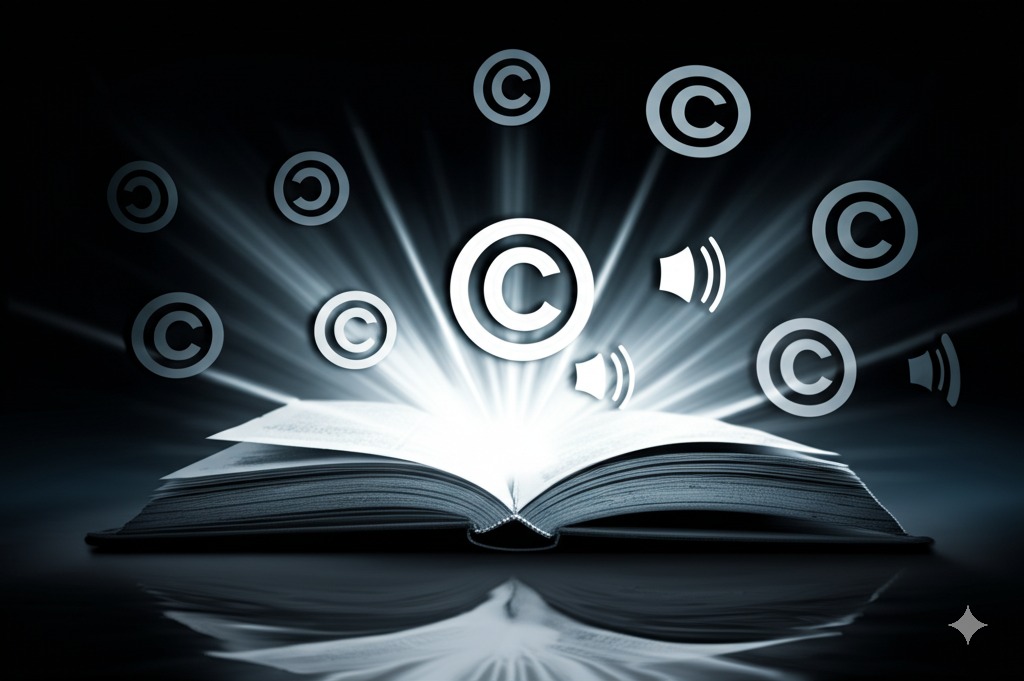
Frequently Asked Questions (FAQs) About Copyright Laws for AI-Generated Audiobooks
Can AI-generated audiobooks be copyrighted?
Yes, but with conditions. The copyright typically covers the human elements involved in creating the audiobook – selecting the voice, editing the performance, adding human-directed emotional inflections, etc. The more human creativity involved, the stronger the copyright protection. In most countries, purely machine-generated content with no human direction has weaker protection or might not qualify for copyright at all.
What are “voice rights,” and how do they differ from copyright?
Voice rights protect what makes your voice uniquely yours. It’s kind of like how your voice is part of your identity – just like your face or name.
Copyright is totally different. That’s about protecting books, music, and other creative works. But your actual voice – the way you sound – that’s protected by voice rights laws in many places.
Here’s an example. Let’s say you use AI to make an audiobook that sounds exactly like Samuel L. Jackson. Even if you wrote the book yourself (so no copyright issues there), you could still get in trouble for using his distinctive voice without permission.
The voice rights concept is pretty new in the legal world, but it’s becoming super important now that AI can copy how people sound. If you’re making AI audiobooks, you need to understand both copyright AND voice rights to stay out of trouble.
How can publishers ensure compliance when using synthetic voices?
To stay legally safe, publishers should:
- Get proper commercial licenses for AI voices
- Document human creative input in the production process
- Clearly label AI-narrated content as synthetic
- Research the specific regulations in each market
- Keep records of rights clearances and licenses
- Consider using platforms with built-in compliance features
Are there ethical considerations when replacing human narrators with AI?
Absolutely. Beyond legal issues, publishers should consider:
- The economic impact on professional narrators
- Transparency with listeners about AI usage
- Quality differences between AI and human performances
- Accessibility benefits that might come from cheaper production
- Cultural nuances that AI might miss
For creators interested in voice technology for different applications, AI voice actors in animation explores some of these ethical considerations in a different context.
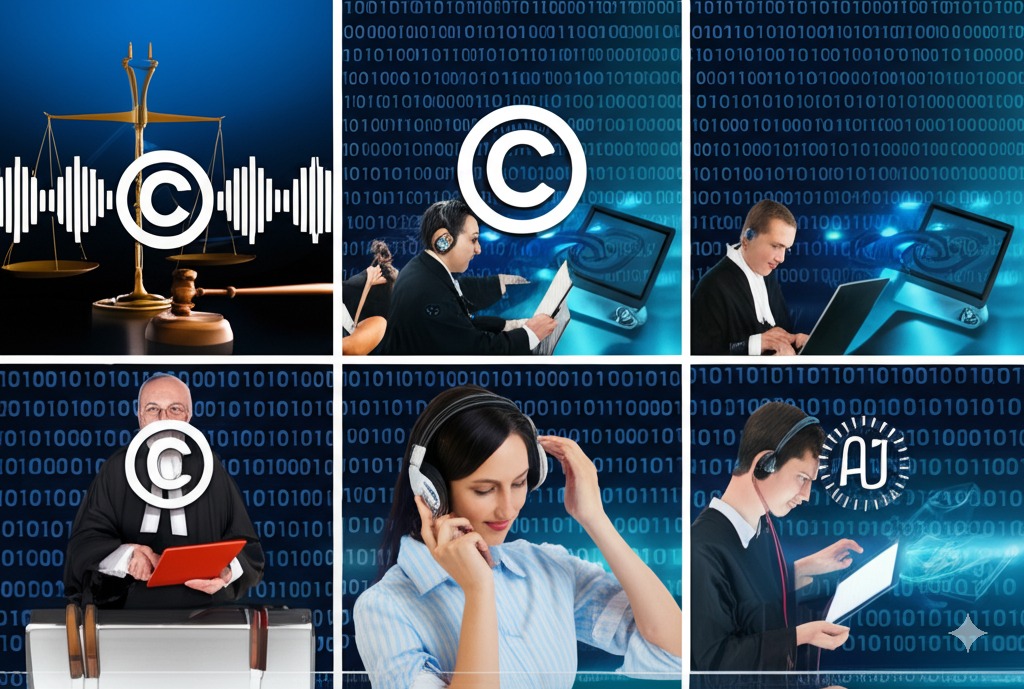
Conclusion about Copyright Laws for AI-Generated Audiobooks
The world of copyright laws for AI-generated audiobooks is still taking shape, with new court decisions and regulations emerging regularly. By understanding both copyright and voice rights issues, publishers can make smarter decisions about how they create and distribute AI-narrated content.
The key takeaways? Document your human creative input, get proper licenses, follow regional regulations, and stay up to date as laws evolve.
Different markets have different requirements, so what works in the US might not work in China or Europe. You need to adjust your approach depending on where you’re selling your audiobooks.
The good news? You don’t have to figure all this out alone. The AI voice industry is creating better tools to help with legal compliance. And as more publishers use this technology, clearer standards will emerge.
AI voices are making audiobooks cheaper to produce and more accessible to people who couldn’t afford them before. They’re opening doors for indie authors and small publishers who couldn’t pay for professional narration. The challenge is using these exciting tools responsibly and legally.
As you try out AI voice options like Murf.ai, Speechify, or Fliki.AI, look beyond just how good they sound. Check out what legal protections they offer too. With smart planning, you can use this cool technology while staying on the right side of the law.
Sources:
-
https://mybookcave.com/authorpost/navigating-legal-and-licensing-requirements-for-audiobooks/
-
https://global.chinadaily.com.cn/a/202404/24/WS66286719a31082fc043c3acf.html
-
https://www.hfgip.com/news/landmark-decision-copyright-protection-human-voice-china
-
https://www.zdnet.com/article/china-mulls-legality-of-ai-generated-voice-used-in-audiobooks/

